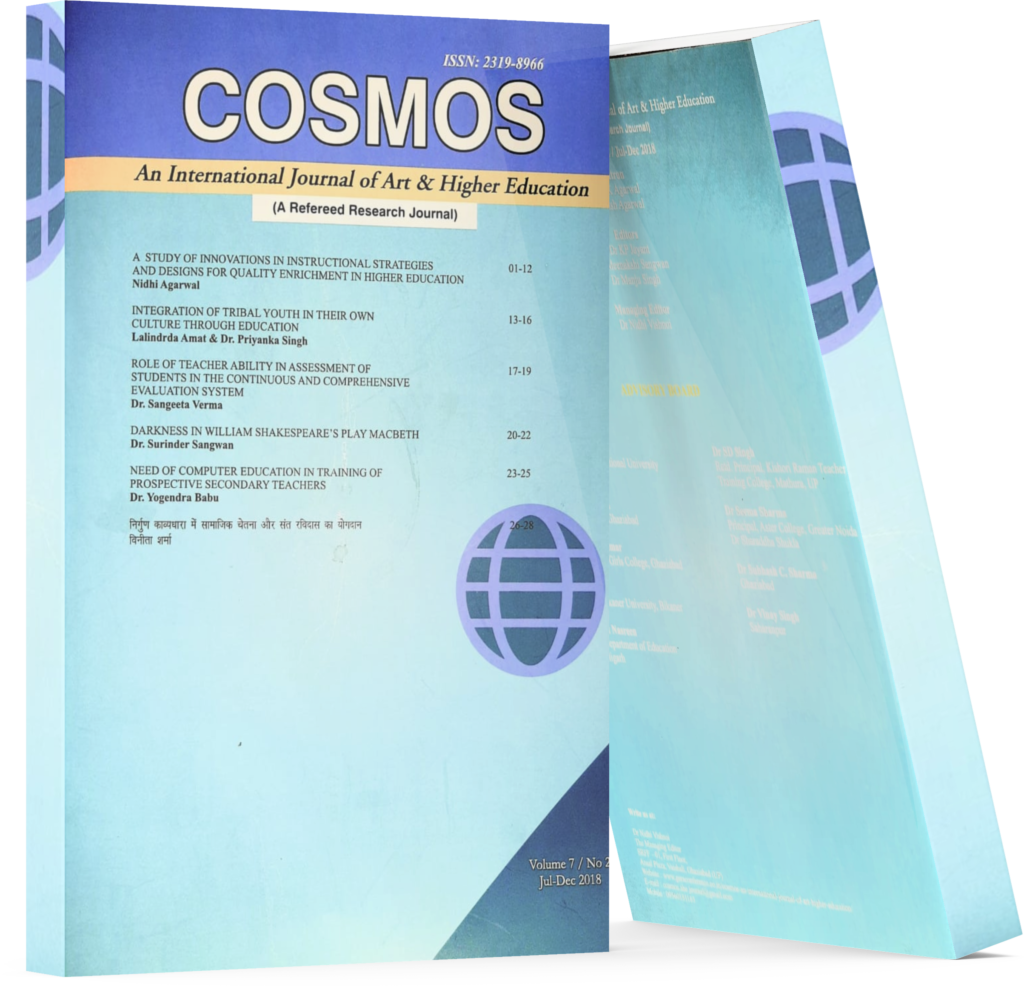Learners’ Psychological Well-Being And Academic Performance In The Midst Of Health Crisis: A Correlational Study
Keywords:
Learners, Psychological Well-Being, Academic Performance, Health Crisis,, Pandemic, COVID 19Abstract
The major problem of the study was to determine the effects of learners’ psychological well-being in the midst of pandemic on academic performance. The study made use of the descriptive-correlational method of research. The study adopted the psychological well-being instrument (PWB) with a validity index ranging from 0.72 to 94. The respondents of the study were selected college learners studying in one higher education institutions in Malolos City. The data were presented using tables and the results of the study were tabulated and processed using Statistical Packages for Social Sciences (SPPS). The results of the study revealed that learners’ psychological well- being mean was “a little agree” - 5.29. The “a little agree” mean was manifested by the following indicators: (1) Autonomy- 4.98, (2) Environmental mastery- 4.85, (3) Personal Growth - 5.66, (4) Positive relation with others - 5.57, (5) Purpose in Life - 5.55, and (6) Self- acceptance - 5.10. Moreover, learners’ over-all mean of academic performance is 1.65 (Accomplished) with a standard deviation of 0.31451. The accomplished mean is manifested by the following indicators: (1) Exemplary - 22.77%, (2) Proficient - 19.72%, (3) Accomplished - 34.98%, (4) Emerging - 11.97%, (5) Beginner - 10.56%, and (6) Failed - 0%.Hence, the study also revealed that, learners’ psychological well-being in the midst of health crisis exert significant effects with academic performance.
Downloads
References
Amalu, M.N. (2018). “COVID-19 Pandemic: Improving Mental Health and Psychological Well Being of Students in Nigeria.”
Ballogan, M., (2021). “Status of learners’ support in the college of education of a state university in the Cordillera-Philippines during the COVID-19 pandemic: Learners’ support in a college of education”. International Journal of Curriculum and Instruction, 13(3), 2676-2708.
Bordbar, F.T., Nikkar, M., Yazdani, F. and Alipoor, A., (2019). “Comparing the psychological well-being level of the students of Shiraz Payame Noor University in view of demographic and academic performance variables”. Procedia-Social and Behavioral Sciences, 29, 663-669 and Europe’s Journal of Psychology, 6(2), 85-104.
Brand, P.L., (2020). “COVID-19: a unique learning opportunity if the well-being of learners and frontline workers is adequately supported”. Perspectives on Medical Education, 9, 129-131.
Brooks, S.K., Webster, R.K., Smith, L.E., Woodland, L., Wessely, S., Greenberg, N. & Rubin, G.J., (2020). “The psychological impact of quarantine and how to reduce it: Rapid review of the evidence”. The Lancet, 395(10227), 912-20, doi: 10.1016/S0140- 6736(20)30460-8.
Camba, A.T., (2021). “Baybayin: The Role of a Written Language in the Cultural Identity and Socio-Psychological Well-Being of Filipinos”. (Doctoral dissertation, Harvard University.
Cao, W., Fang, Z., Hou, G., Xu, X., Dang, J. & Zheng, J. (2020). “The psychological impact of the COVID-19 epidemic on college students in China”. Psychiatry Research, 287. https://doi.org/10.1016/j.psychres.2020.11293
Carter, Hazel M., (2017). “Institutionalization of Caring in an Era of Accountability: The psychological well-being of learners”. New Educator, 8(2), 177-193.
Fulgencio, L., Mae, K. B. C. E. A., Plaza, D. S. R. A. F. & Tus, J. “Amidst Online Learning in
the Philippines: The Self-Efficacy and Academic Motivation of the Senior High School Students from Private Schools.
Haider, A.S. and Al-Salman, S., (2020). “Dataset of Jordanian university students’ psychological health impacted by using e learning tools during COVID-19”. Data in brief, 32, 106104.
Haw, J.Y., King, R.B. and Trinidad, J.E.R., (2021). “Need supportive teaching is associated with greater reading achievement: What the Philippines can learn from PISA 2018”. International Journal of Educational Research, 110, 101864.
Kim, M., Do Kim, Y. & Lee, H.W., (2020). “It is time to consider athletes’ well-being and performance satisfaction: The roles of authentic leadership and psychological capital”. Sport Management Review, 23(5), 964-977.
Li, Y. & Bates, T.C., (2019). “You can’t change your basic ability, but you work at things, and that’s how we get hard things done: Testing the role of growth mindset on response to setbacks, educational attainment, and cognitive ability”. Journal of Experimental Psychology: General, 148(9), 1640-1655. https://doi.org/10.1037/xge0000669.
Li, Z.S. and Hasson, F., (2020). “Resilience, stress, and psychological well-being in nursing students: A systematic review”. Nurse Education Today, 90, 104440.
Nganga, Lydiah, et. al., (2019). “Well-being in Academic Performance: Learners of Colors Speak”. SAGE Open, 9(2), Retrieved from. http://sagepub.com.
Rand, K.L., Shanahan, M.L., Fischer, I.C. & Fortney, S.K., (2020). “Hope and optimism as predictors of academic performance and subjective well-being in college students”.
Learning and Individual differences, 81, 101906.
Rehman, A.U., Bhuttah, T.M. and You, X., (2020). “Linking burnout to psychological well being: the mediating role of social support and learning motivation”. Psychology Research and Behavior Management, 13, 545.
Salami, S.O., (2018). “Social behavior and personality”, An international journal, 39, 785- 794.

